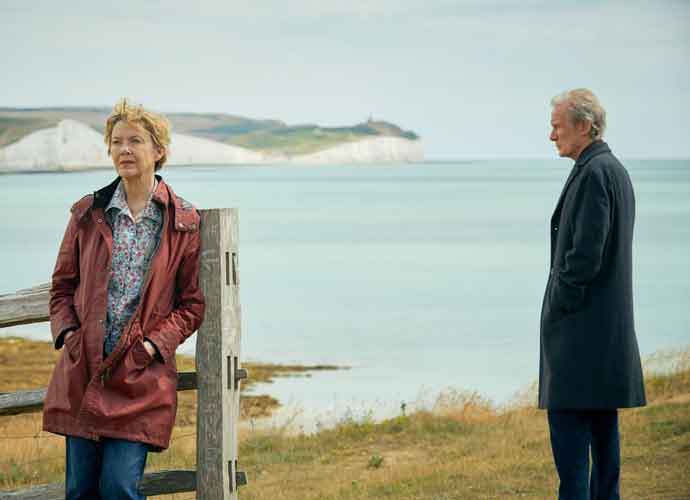‘Hope Gap’ Movie Review: Flashes Of Brilliance Can’t Save Uneven Divorce Drama

2.5/5
It’s difficult to say why we seem to love movies about divorce so much. Like Marriage Story and Kramer vs. Kramer before it, Hope Gap tries to tap into audiences’ seemingly endless capacity to watch loving couples move apart and get very hurt in the process.
Unfortunately, writer/director William Nicholson‘s new film is not quite up to the challenge of differentiating itself from its predecessors in a meaningful way. Hope Gap follows Grace (Annette Bening) and Edward (Bill Nighy) as they approach their thirtieth year of marriage. The film’s opening twenty minutes lays the groundwork for their relationship — Edward is inattentive and overly deferential while Grace has a bad habit of lashing out in an attempt to get a reaction from Edward — but the big drama comes after Edward announces that he is leaving Grace for the mother of one of his students.
While this setup could easily turn into something profound, it very much does not do so here. Grace is almost shockingly simple as a character: Edward’s departure sends her into an emotional freefall (she buys a dog and names it Edward) that really fails to evolve in a compelling manner for most of the film. Edward’s composition fares a little better, with his flaws and backstory more complex and fleshed-out than Grace’s. This makes it all the more difficult to connect with Grace, a woman who hits her husband without provocation before the film even reaches the 30-minute mark.
Bening, normally one of the most compelling actors regularly working onscreen, simply fails to make Grace an interesting character here. Her English accent is more than a little off, and it often seems like her attempts to sound convincing are preventing her from doing the top-of-the-line acting she is known for. Nighy again comes out slightly ahead, but this is mostly because of how much better his material is.
The strangest thing about Hope Gap is how unbelievably inconsistent it is. Some scenes in the film are written with such an unbelievable tenderness and ear for dialogue that it’s hard to believe they’re being juxtaposed with some of the most blasé filmmaking I’ve seen in a while. A highlight reel of the film’s best moments could go toe-to-toe with many of its contemporaries, but as a whole it just doesn’t work.
There’s also a whole subplot involving Grace and Edward’s Josh O’Connor-played son Jamie, but it’s far too bland to be of real consequence to the movie. For reasons unknown, Jamie has trouble connecting with others in his personal life. That’s basically it — this issue is essentially unexplored in any consequential sense.
Perhaps most painfully, the film often takes minor detours to explore themes of religion, poetry, and, yes, the failed Napoleonic invasion of Russia. These moments are so clumsily handled that they’re best forgotten about — if only that’s how movies worked.
The result of all of this is a film whose highlights get drowned out in the noise. Leaving the theater, I tried to focus hard on all of its best moments in hopes of letting them outweigh the bad. As you can tell by the score, I was only partially successful.
RELATED ARTICLES
Get the most-revealing celebrity conversations with the uInterview podcast!







Leave a comment